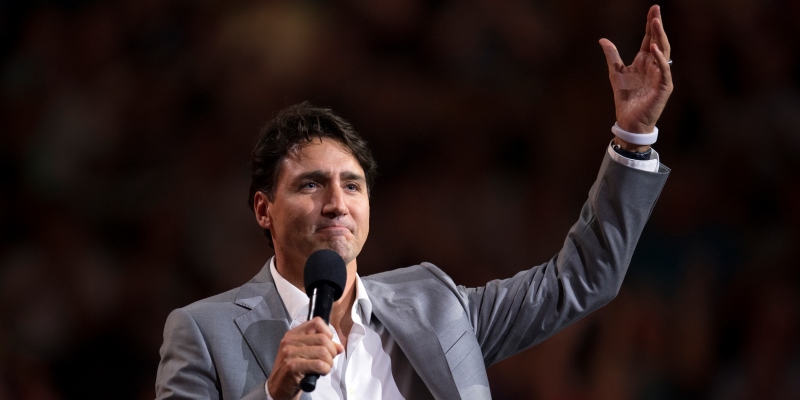Canadians suffering from Ottawa’s ‘fairy dust’ approach

There’s no discipline to political policy aspirations more severe than reality. Politicians can only kick the can of bad policy down the road for so long until real-world consequences show up. The Trudeau government for nearly seven years has governed based on good intentions, hopeful optimism and fairy dust. The lack of pragmatic policy and recognition of policy failures with course corrections has been largely absent, and it’s costing Canadians dearly.
Let’s start with the price increases (i.e. inflation) that are lowering the living standards of Canadians, and is now polling as one of the top issues. Trudeau famously said last election that he doesn’t worry about monetary policy. The federal department of finance warned the Prime Minister’s Office in June 2021 that inflationary pressures could be more than temporary and persist at high levels.
Despite the warnings, the Trudeau government continued to spend at record levels, all financed by an unprecedented level of money creation by the Bank of Canada, which pumped more than $450 billion into the Canadian economy in less than a year at a time when the supply of goods and services was declining. Remember, inflation is always about too many dollars chasing too few goods and services.
While the Bank of Canada has systematically reduced that liquidity by selling its holding of government debt, it will take time to reduce the amount of money sloshing around the economy.
Perhaps nowhere, however, is the hopeful optimism and fairy dust approach to policy more evident than energy and climate change. The government recently released a 270-plus page report outlining actions to achieve “net-zero” emissions by 2030. The plan literally rests on technological innovations that have not yet been achieved (and actually calls for the yet-to-be-achieved technological breakthroughs to be reached sooner than planned). One imagines the prime minister waving a wand in his office and demanding technological progress. If only it were that easy.
One only needs to look at Europe and parts of the United States to see the likely outcome—more energy price increases for Canadians. In the simplest terms, we cannot generate reliable economical energy relying on wind and solar because it’s not always windy and the sun does not always shine. We don’t yet have battery or storage technology for those sources of energy.
That’s why both sources require backup systems. The problem is that the supply of energy used for those backup systems and the delivery infrastructure, such as pipelines, has been badly mismanaged and punitively discouraged. The lack of investment in exploration, development and infrastructure in traditional energies including oil and gas means western countries have not been able to meet rising demand.
So as we’re observing, when countries need those backup sources of energy (again, oil and gas) they’re forced to turn to countries ruled by despots such as Russia, Iran and Saudi Arabia. Put simply, the fairy dust approach in Ottawa (and Washington, D.C.) is empowering some of the worst countries on the planet while punishing liberal democracies and their citizens.
Today, the pragmatism that guided previous Liberal governments is almost completely absent in Ottawa. The cost of this fairy dust approach to policy has been enormous and will only get larger. What’s needed is some old-fashioned commonsense based on real-world pragmatism.
Authors:
Subscribe to the Fraser Institute
Get the latest news from the Fraser Institute on the latest research studies, news and events.


